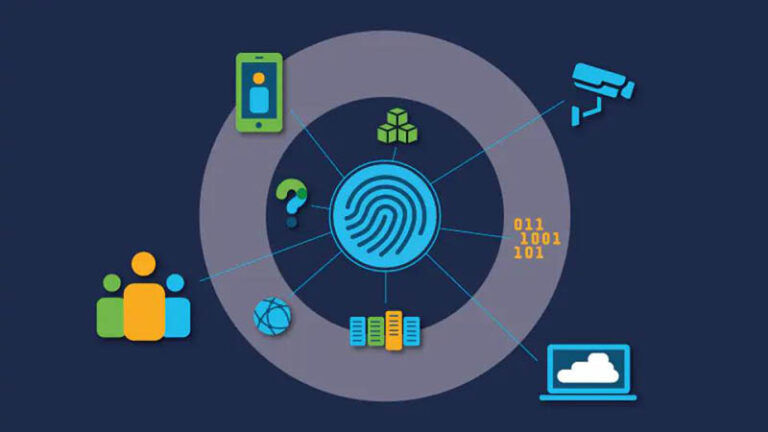With a focus on preserving data availability, confidentiality, and integrity within a network, network security is an essential part of an organization’s IT infrastructure. Strong network security measures are required in order to protect sensitive data & stop unwanted access due to the growing frequency of cyber criminals. Security lapses may lead to severe monetary losses, harm to one’s reputation, and legal repercussions. To reduce risks & preserve a safe operating environment, enterprises must thus give network security top priority. Several precautions must be taken to guard against possible threats when implementing effective network security.
Key Takeaways
- Network security is crucial for protecting sensitive data and preventing unauthorized access
- Cisco routers play a key role in network security by controlling traffic and providing secure connectivity
- Implementing security features on Cisco routers, such as access control lists and firewalls, helps to enhance network security
- Best practices for securing Cisco routers include regularly updating firmware and using strong authentication methods
- Monitoring and managing network security with Cisco routers is essential for detecting and responding to security threats
They include putting encryption, access control, & monitoring systems in place as well as safeguarding network equipment like routers, switches, and firewalls. Because they provide the framework for safe data transfer and communication, Cisco routers are essential to network security. They function as gateways between various networks, guiding data packets to the proper locations.
Therefore, ensuring the security of the entire network depends on protecting Cisco routers. Roles and Skills in Security. ACLs (access control lists), support for virtual private networks (VPNs), firewall features, & intrusion prevention systems (IPS) are just a few of the security features that Cisco routers provide. Through the use of these tools, enterprises can monitor and stop malicious activity on the network, control access to resources, and enforce security policies.
The creation of secure communication channels. Using VPNs to create secure communication channels is one of the main functions of Cisco routers in network security. VPNs enable encrypted communication over open networks, guaranteeing the security and protection of data transferred between various locations against manipulation or eavesdropping. Examining and filtering network traffic. In order to prevent unwanted access and defend against common network threats like denial-of-service (DoS) attacks and port scanning, Cisco routers can be set up to filter and inspect network traffic using ACLs and firewall capabilities.
| Metrics | Results |
|---|---|
| Number of Cisco routers deployed | 500 |
| Percentage reduction in security incidents | 35% |
| Number of security patches applied monthly | 100 |
| Percentage increase in network performance | 20% |
Moreover, real-time detection and blocking of malicious traffic by Cisco routers integrated with IPS solutions improves the network’s overall security posture. Cisco router security features must be used in order to protect the network from potential threats & weaknesses. Access control lists (ACLs) are used as a basic security feature on Cisco routers to manage traffic flow & filter packets according to certain standards like protocols, ports, source and destination IP addresses, and additional criteria. With the aid of ACLs, administrators can create precise rules that allow or prohibit traffic, enforcing security regulations and preventing unauthorized access to network resources.
Cisco routers facilitate the establishment of virtual private networks (VPNs) in addition to ACLs, allowing for the establishment of secure communication channels over public networks. VPNs protect the integrity and confidentiality of data transferred between various locations by using tunneling and encryption protocols. Companies can expand the reach of their private network while keeping a high level of security by setting up VPNs on Cisco routers to establish secure connections between distant offices, partners, or mobile users.
Also, traffic can be inspected and filtered by Cisco routers using predefined rules when they are configured with firewall capabilities. On Cisco routers, firewalls can be used to thwart malicious traffic, stop illegal access to private data, and enforce network security regulations. Through the utilization of firewall functionalities on Cisco routers, establishments can bolster their defenses against unauthorized activities & external threats. Following best practices covering different configuration, management, & monitoring aspects is necessary for safeguarding Cisco routers. Making sure that Cisco routers are running the most recent operating system or firmware version & have all applicable security patches installed is one of the basic best practices for maintaining router security.
Updating the router’s software on a regular basis guarantees that it has the newest security features & improvements and helps to mitigate known vulnerabilities. Putting in place robust authentication procedures to gain access to Cisco routers is another recommended practice. This entails setting up role-based access control to limit administrative privileges based on job responsibilities, utilizing complex passwords or passphrase-based authentication, and enabling multi-factor authentication when feasible.
Organizations can stop unwanted access to router configurations and private network settings by implementing robust authentication procedures. Also, in order to access Cisco routers remotely, secure management protocols like Secure Shell (SSH) or HTTPS must be configured. Through the use of these protocols, sensitive data, including login credentials and configuration data, is shielded from interception and eavesdropping between the administrator’s workstation and the router. Organizations can guarantee that administrative tasks carried out on Cisco routers are carried out in a secure manner by employing secure management protocols. In order to find any misconfigurations or security holes, enterprises should also routinely audit and examine the Cisco router configuration settings.
Cisco router configurations are made safer by following industry standards and best practices, which lowers the possibility of security incidents. This is achieved through regular security audits & assessments. Identifying possible threats, spotting security events, & upholding a proactive security posture all depend on monitoring and controlling network security with Cisco routers. Cisco routers offer a range of tools and functionalities to facilitate efficient management of security policies, analysis of security events, and network traffic monitoring. Using logging & alerting systems to record security-related events and activities within the network is one of the most important parts of using Cisco routers for network security monitoring.
Logs can be produced by Cisco routers for a number of events, including system errors, interface status changes, routing updates, and violations of access control. Organizations can obtain pertinent data for forensic analysis, security incident response, and troubleshooting by configuring the logging settings on Cisco routers. Cisco routers also facilitate the integration of centralized monitoring and logging systems, like Security Information & Event Management (SIEM) platforms and Syslog servers. Routing logs to a centralized system allows organizations to correlate and aggregate security events from various sources, providing a thorough understanding of network activity and possible security risks. It is possible to analyze security events efficiently & enable prompt incident response with this centralized approach to logging and monitoring. Cisco routers include features for managing security policies and configurations across multiple devices through centralized management platforms like Cisco’s Identity Services Engine (ISE) or Cisco DNA Center, in addition to logging and alerting.
With the help of these platforms, administrators can automate configuration tasks, establish and enforce consistent security policies, and guarantee regulatory compliance throughout the network infrastructure. Network perimeter advanced threat protection. Using Cisco routers & next-generation firewalls to offer advanced threat protection at the network perimeter is a popular integration strategy.
In addition to Cisco routers’ standard firewall features, next-generation firewalls provide deep packet inspection, application-layer visibility, and sophisticated threat detection capabilities. Businesses may create a strong defense system that can recognize & stop complex threats at the network edge by integrating next-generation firewalls with Cisco routers. Real-time threat identification and reduction. Real-time network threat detection and mitigation are made possible by Cisco routers’ integration of intrusion detection/prevention systems (IDS/IPS). Network traffic can be observed by IDS/IPS solutions, which can then react quickly to contain or block possible threats based on patterns of known attacks or suspicious behavior.
Organizations can take advantage of both internal and perimeter-based threat detection capabilities by integrating IDS/IPS with Cisco routers, which will improve their overall security posture. All-encompassing Visibility and Control. Comprehensive visibility and control over devices connecting to the network are made possible by integrating endpoint protection platforms with Cisco routers. Platforms for endpoint protection offer sophisticated endpoint security functionalities, including vulnerability management, application control, device encryption, and antivirus/malware defense.
Organizations can lower the risk of compromised devices connecting to the network by enforcing security policies at the network level based on endpoint posture assessment by integrating endpoint protection platforms with Cisco routers. With Cisco routers, network security is expected to continue developing and innovating to handle new threats and changing technological trends in the future. Adopting software-defined networking (SDN) concepts into Cisco router architectures is one of the major trends in network security going forward. Network infrastructure can be centralized and programmable with software-based controllers thanks to SDN.
This facilitates automated configuration changes, dynamic policy enforcement, and improved network activity visibility. The incorporation of machine learning (ML) and artificial intelligence (AI) into Cisco router security features to facilitate adaptive response mechanisms and proactive threat detection is another trend for the future. Large volumes of network data can be analyzed in real-time by AI/ML technologies, which can then be used to spot unusual behavior patterns, anticipate possible security incidents, & automate response actions in accordance with preset policies. Organizations can improve their capacity to identify and address complex threats more successfully by incorporating AI/ML capabilities into Cisco router security features. Cisco router network security is also anticipated to be impacted by developments in encryption technologies, such as quantum-resistant cryptography.
Developing new cryptographic techniques that are resistant to quantum attacks is the goal of quantum-resistant cryptography, which attempts to mitigate the possible threat posed by quantum computers to current encryption algorithms. In order to guarantee the long-term confidentiality and integrity of sensitive data transferred over networks, Cisco router VPN solutions must incorporate quantum-resistant cryptography as quantum computing advances. To sum up, enterprise networks need secure communication to protect organizational assets from cyberattacks, and Cisco routers are part of the solution for network security.
Businesses can create a resilient defense strategy that addresses present issues while getting ready for changes in the cybersecurity landscape by realizing the value of network security, putting strong security features on Cisco routers, following best practices for securing router configurations, monitoring and managing network security efficiently, integrating routers with other security technologies, and keeping up with emerging trends in network security with Cisco routers.
If you’re interested in transitioning from traditional to Cisco DNA Center enabled device management, you may want to check out this insightful article on CCNATraining. It provides a step-by-step guide to help you make the switch and take advantage of the benefits of Cisco’s DNA Center.
FAQs
What are Cisco routers?
Cisco routers are networking devices that are used to connect computer networks and facilitate the transfer of data between them. They are designed to forward data packets between computer networks, and are an essential component of modern computer networking.
What are the main features of Cisco routers?
Cisco routers offer a range of features including advanced security, quality of service (QoS) capabilities, and support for various network protocols. They also provide advanced routing and switching capabilities, as well as support for virtual private networks (VPNs) and wireless networking.
What are the different types of Cisco routers available?
Cisco offers a wide range of routers to suit different networking needs, including enterprise routers, small business routers, and service provider routers. These routers vary in terms of performance, scalability, and features, and are designed to meet the needs of different types of organizations.
What are the benefits of using Cisco routers?
Using Cisco routers can provide several benefits, including reliable and secure network connectivity, advanced routing and switching capabilities, and support for a wide range of network protocols. Cisco routers are also known for their high performance and scalability, making them suitable for a variety of networking environments.
How do Cisco routers compare to other router brands?
Cisco routers are known for their high performance, advanced features, and robust security capabilities, which set them apart from many other router brands. While there are other router brands available, Cisco routers are often preferred for their reliability and extensive feature set.















